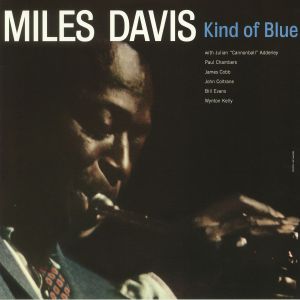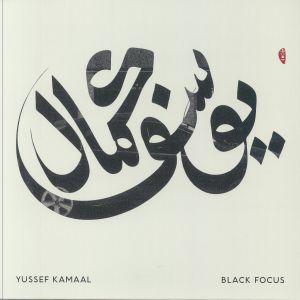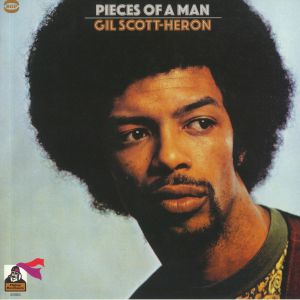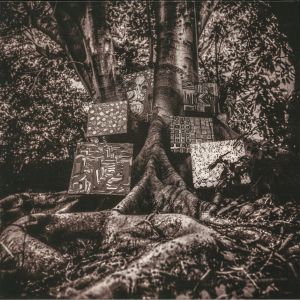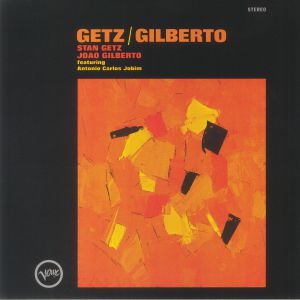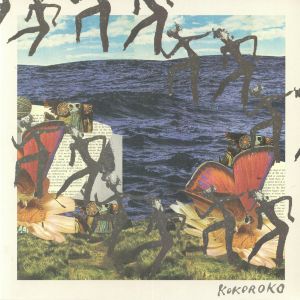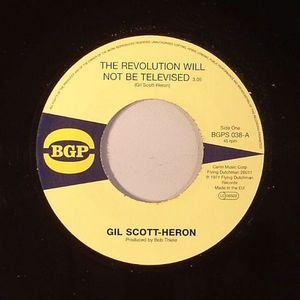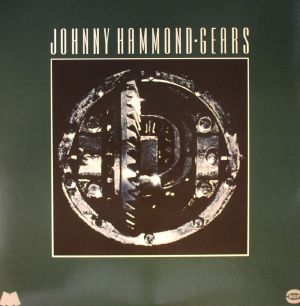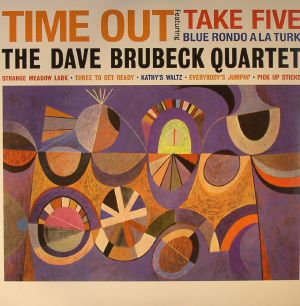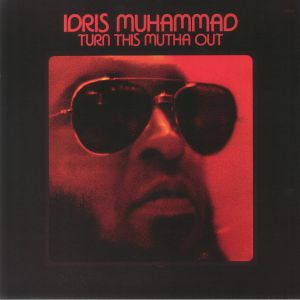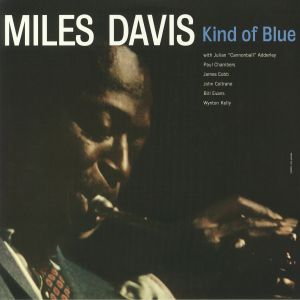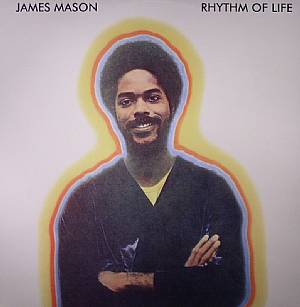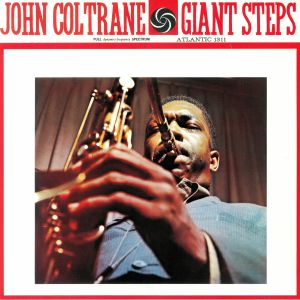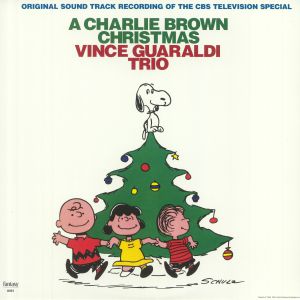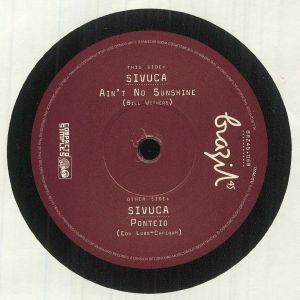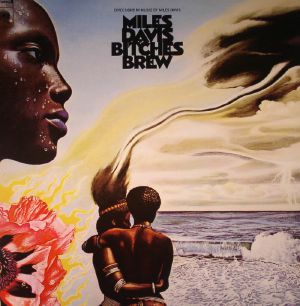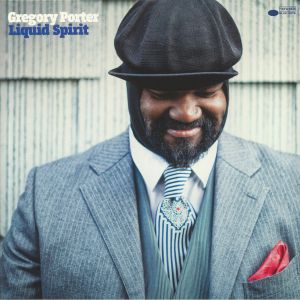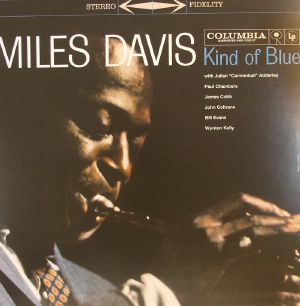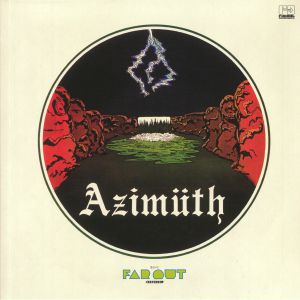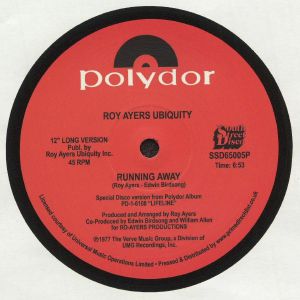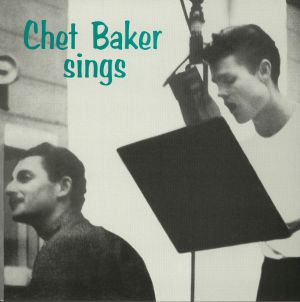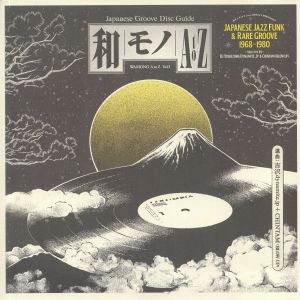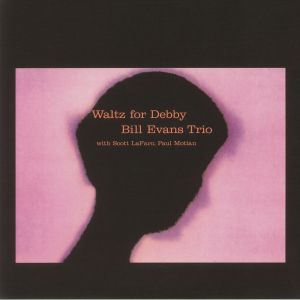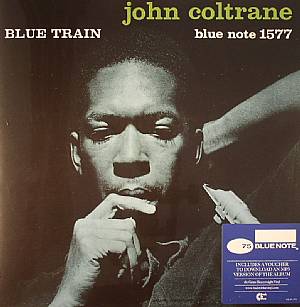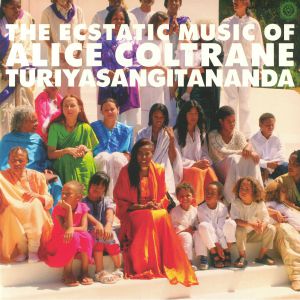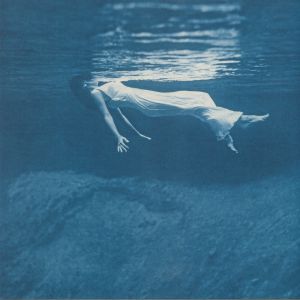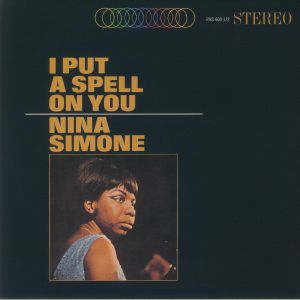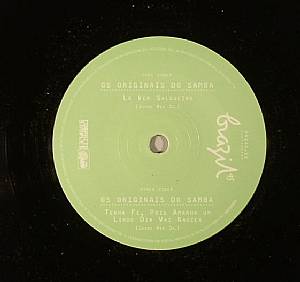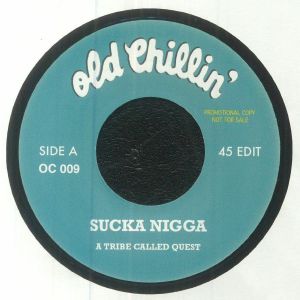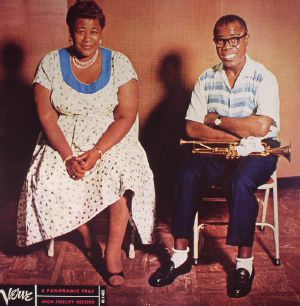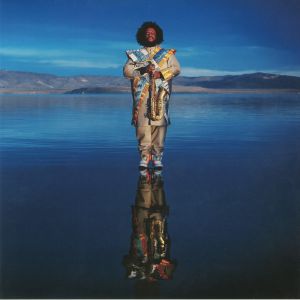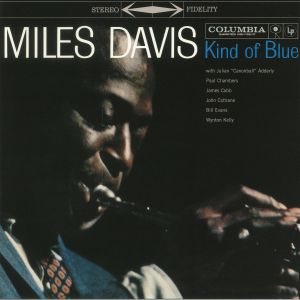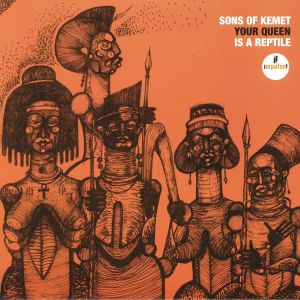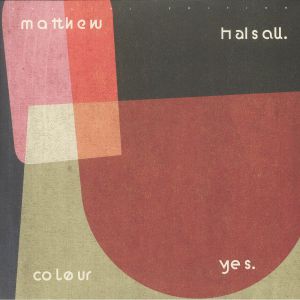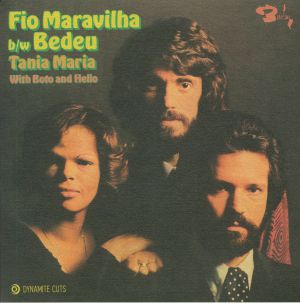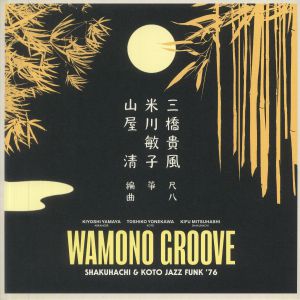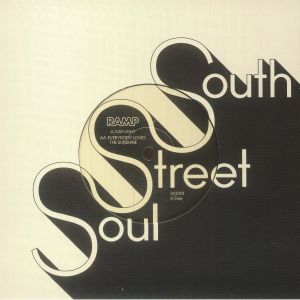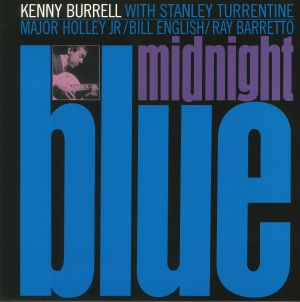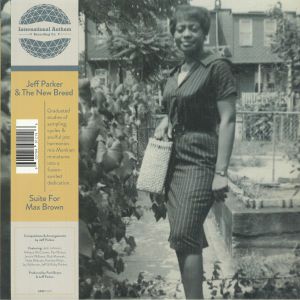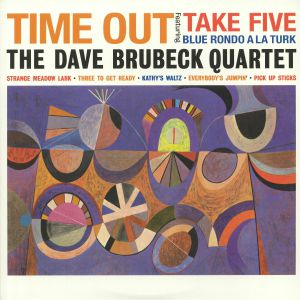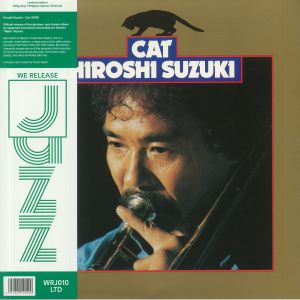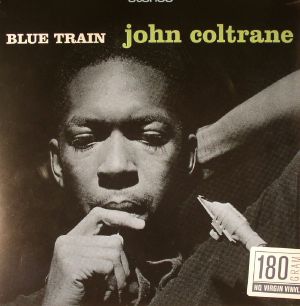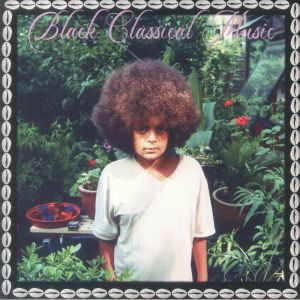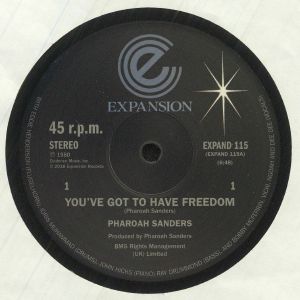Filter
Genre
Coming Soon
Music
Release Date
3,524
Not Forthcoming
632
Forthcoming
31
Last Week
45
Last 2 Weeks
74
Last Month
166
Last 2 Months
424
Last 6 Months
752
Last Year
Artist
Release Title
Price
Tags
Intérprete: Juno Recommends Jazz, Agogo Records
in stock $14.37
Review: Brownswood Recordings has high hopes for this debut album from the previously unheralded Yussef Kamaal, which brings together hyped producer Kamaal Williams (AKA Henry Wu) and fast-rising Afrobeat drummer Yussef Dayes. With such talent to draw on, you'd expect Black Focus to be rather good. Happily, it is, with the duo delivering a typically London-centric take on jazz funk. That means that they take as much inspiration from the work of Kaidi Tatham as, say, Herbie Hancock. The key to the album's success - and, yes, it is generally as special as Gilles Peterson suggests - is the fluid combination of Dayes' brilliant drumming and Williams' superb synth solos and effortlessly groovy Rhodes playing.
… Read moreIntérprete: Owen Jay, JimmyTheTwin, Aroop Roy, Alex Attias, Manu Archeo, Tropical Fever, RUSTAM OSPANOFF., Ourra, Replika | Common Mode, M//R, Cro, Thatmanmonkz (Shadeleaf Music), Lay-Far, Lexis (Music Is My Sanctuary), Session Victim, Juno Recommends Jazz, JKriv (Razor-N-Tape), Roman Rauch, NICOLA CONTE, WotNot Music, Harvey Sutherland, Bodhi, Z Lovecraft, Ishmael, Sameed, Coeo, Tomasz Guiddo, Orphidal, Dave Aju, ReeKee (Wrong Notes), DJP (Soul Print Rec), 4004 , Long Island Sound, Francesco Rossini, Secretsundaze, Nicky Soft Touch, Neon Finger
… Read more! low stock $21.56
in stock $26.26
Review: The music that makes up Harmony of Difference, Kamasi Washington's first EP of note since the release of acclaimed 2015 album The Epic, was premiered live as a "six-track movement" earlier this year. The "suite" - here stretched across both sides of an essential 12" - sees Washington continue to explore the idea of what it means to be black in America in the 21st century. Musically, the EP contains some of his smoothest and most laidback compositions yet, with all his musical collaborators being on fine form. The headline attraction is undoubtedly 14-minute flipside "The Truth", an almost operatic jazz epic full of swelling choral contributions, fizzing drum solos, rising horns and, of course, plenty of Washington's distinctive saxophone.
… Read moreIntérprete: Scratchandsniff, Andrew Pirie (Melting Pot), Mukatsuku Records Chart, Phillie P (Ice City Rec), Dom Servini, RUSTAM OSPANOFF., Tom Central, * Record Breakin' Music *, ISOUL8 (Volcov), Juno Recommends Jazz, Jazzman/Juke Box Jams/Soul/Jazz45, Andrea passenger, The Jazz Meet, Appian, Gavin Boyd (Soul Has No Tempo), Chubby, Kalita Records
… Read more in stock $16.31
Intérprete: Juno Recommends Jazz, Miles Away Recs
in stock $30.69
Intérprete: Mukatsuku Records Chart, JimmyTheTwin, AfroBase (Radio Chart), RUSTAM OSPANOFF., Juno Recommends Broken Beat Nu Jazz, Galletas Calientes, THE REFLEX, Afro Beat Foundation, NICOLA CONTE, Ex-Friendly (Truth & Lies Music), Jenifa Mayanja Bumako Recordings, Dee Brown (Creak Inc.), Secretsundaze, Miles Away Recs
… Read more in stock $18.79
Review: Wow, classics don't come much more special than this. A like-for-like repress of the 1970 RCA release, both sides here are soaked in Scott Heron's raw troubled soul. The endlessly sampled, hugely powerful and perfectly funky "Revolution" remains almost as poignant and prophetic as it was the day it was penned. "Home Is Where The Hatred Is" is much more personal and reveals his talent as a singer as much as the lead track boasts his poetry and ability to deliver a strong message.
… Read morein stock $12.44
Review: Classic jazz funk album from the legendary Johnny 'Hammond' Smith with a special version with six previously unissued bonus out-takes. Released in 1975 and his 32nd long player, it heralded a fresh chapter in his career that saw him exploring more electronic instrumentation and deeper shades of funk in a similar way to Roy Ayers or Bob James. The result was a timeless document that carries motifs of many of today's artists; the harmonies of "Can't We Smile?", for instance, smack of Plantlife while the punctuated piano work and mirrored squiggling synths on "Song For The Family" echoes with Flying Lotus-style whim. Also a key source of breaks for many junglists, Gears is a historic document that's not only played a strong role in electronic music but still sounds incredible today.
… Read moreIntérprete: Andrew Pirie (Melting Pot), Mukatsuku Records Chart, 7 Samurai Tom Wieland freesoulinc, RUSTAM OSPANOFF., Craig Charles Funk And Soul, Javi Bayo, Pete Haigh, * Record Breakin' Music *, Lay-Far, ISOUL8 (Volcov), Bosq, Juno Recommends Funk, Juno Recommends Jazz, The Jazz Meet, Red Greg, Charlie bucket/ dancing in space, BGP Records, Soul Music, Miruga
… Read more in stock $27.37
Intérprete: Juno Recommends Jazz
in stock $13.55
Review: Very little is known about the collective of musicians behind the SAULT project, but their music in many ways speaks for itself. Earlier in the year they delivered Untitled (Black Is), a heartfelt, angry and righteous set of soul, funk, drill and spoken word tracks that provided a brilliant commentary on what it means to be black in 2020. It's a contender for album of the year, for sure, and the good news is that this speedy follow-up is every bit as essential. It's undoubtedly more celebratory than its predecessor, but every bit as musically detailed, combining cutting-edge electronics and all manner of infectious rhythms with enlightening vocals and all manner of live jazz, soul, punk-funk and jazz-funk instrumentation (as well as some seriously evocative orchestration).
… Read moreIntérprete: Fradinho, Rocco Universal, Owain Kimber (Owain K), RUSTAM OSPANOFF., Marcel Vogel, John Kong, DJ Kobayashi
in stock $37.32
Review: Idris's fifth and perhaps most popular of his near-20 LP strong solo discography (that's not including the epic array of artists he's worked with from Fats Domino to Art Davis) Ranging from the heavily-sampled stone-cold soul stunner "Could Heaven Ever Be Like This" to silky disco funk such as the album title track and the sleazier "Crab Apple" to the frenetic jazz blasts of tracks such as "Camby Bolongo", this is the sound of a man fully committed to the craft and spirit of the groove. Nothing short of essential.
… Read more! low stock $23.77
Intérprete: Juno Recommends Jazz
in stock $13.55
Intérprete: Scratchandsniff, ARSENII, RUSTAM OSPANOFF., Craig Charles Funk And Soul, Pete Haigh, Lay-Far, Funkshone, Patrick Forge, Far Out Recordings, Juno Recommends Funk, Juno Recommends Jazz, JKriv (Razor-N-Tape), INKSWEL (HOT SHOT SOUNDS / BBE), The Jazz Meet, DJ PayAndrewBurgerDotCom, Alex Salvador, Djs: Most Charted - Funk, Kito Jempere, Ptaki, ChoiProductions, Mamadisc
… Read more in stock $19.89
Review: Blue Note are on a reissuing roll, not shying from revisiting the work of their most treasured jazz acts this year. The latest in their Classic Editions comes by way of Donald Byrd, whose timeless 1975 album Places And Spaces documents the trumpeter's fearless jazz-funk fusion era. This being Blue Note, you can expect only the best rendition of this orchestral jazz-funk suite that a vinyl pressing has to offer. This version is an all-analog remaster, by legendary cutting engineer Kevin Gray, from the original tapes. Expect a thorough justice-doing of the hits, 'Dominoes' and 'Wind Parade', which boast production credits from the infamous Larry Mizell.
… Read more in stock $30.41
in stock $16.57
in stock $30.95
Review: Amongst fans of Brazilian music, Sivuca is arguably best known for his 1973 cover of "Ain't No Sunshine" - later a favourite on the rare groove scene - which re-casts the Bill Withers classic as a sumptuous chunk of shuffling samba sunshine. Here, the track gets reissued as part of Mr Bongo's brilliant Brazil 45s series, alongside his lesser-known - but no less impressive - cover of Edu Lobo's "Ponteio".
… Read more in stock $12.44
! low stock $27.37
Review: Few contemporary jazz songwriters have emerged with such demonstrative authenticity and clarity as Gregory Porter. Liquid Spirit continues where the prolific artist left us with Be Good and Water; soulful, funky and galvanised in honest emotion. Echoing foundation-setting singers such as Isaac Hayes, Curtis Mayfield and even further back to the likes of Sammy Davis Junior, Porter flings us from vibe to vibe with precision-written lyrics and emphatic delivery. Highlights include the double-bass slapping stomper "Liquid Spirit", the boogie-fuelled "The In Crowd", the Cullum-esque "When Love Was King" and the tear-jerking finale "Water Under Bridges." Beautiful business.
… Read more in stock $51.41
in stock $12.44
in stock $16.86
Review: Rewind to 1975, Brazilian supergroup Azymuth hit their richest creative vein with this self-titled full-length. Just as the band remain so themselves, this is still hugely relevant and ridiculously on-point considering it's 40 years on the clock. Proof can be found on every track from the sedative harmonic charms of the opener "Linha Do Horizonte", the raw slap bass funk, velvet keys and soaring synths on "Seems Like This" and the frenetic, almost techy mentality of "Wait For My Turn". An essential addition to any collection, this would have blown minds to pieces back in 1975.
… Read moreIntérprete: Andrew Pirie (Melting Pot), Mukatsuku Records Chart, Koichi Sakai, RUSTAM OSPANOFF., Adam isbell -Racubah Sound System, Far Out Recordings, Juno Recommends Funk, Afro Beat Foundation, Summer Carnival Chart, Skyline Recordings Chart, Soul Of Hex, DJ Kobayashi, Charlie bucket/ dancing in space, Juno Recommends International, Professor Shorthair, DJ Blue Funk, Kalita Records
… Read more in stock $30.69
Review: Two outstanding Brazilian funk cuts straight out of 1971: "Esperar Pra Ver" is a laden with an immense orchestrated groove that's triggered by a lean, unforgettable bass guitar riff that matches Evinha's purring, slinky allure. "Que Bandeira" rolls with more of a poppy bossa flow with militant rim shots, swooning strings and a momentum that builds on every verse. Both tracks are taken from Cartao Postal, Evinha's third album that has been known to pass hands for as much as L500 in the past.
… Read more in stock $12.44
Review: Roy Ayers made a number of killer disco cuts in the late 1970s, though few are quite as essential as 'Running Away', which has now been reissued by South Street Disco. Built around an instantly recognisable (and much-sampled groove), the extended 12" version is rich in rubbery, rising and falling bass, clipped guitars, spacey Rhodes motifs, superb lead vocals from Ayers and even better backing vocals courtesy of the female quintet who would later become Eighties Ladies (who's superb 'Tell Him' was reissued in 2020). Turn to the flip for another chance to savour Fever album-opener 'Love Will Bring Us Back Together', a deeper and more low-down disco groover that boasts some seriously good Clavinet riffs and another inspired Ayers' vocal.
… Read moreIntérprete: Craig Charles Funk And Soul, Paul Starey, SOOPASOUL, Juno Recommends Disco, Tonbe, LEGO EDIT
in stock $17.42
in stock $13.55
DJ YOSHIZAWA DYNAMITE JP / CHINTAM / VARIOUS
Wamono A To Z Vol 1: Japanese Jazz Funk & Rare Groove 1968-1980 (reissue) (180 gram vinyl LP)
Cat: 180GWALP 01RE. Rel: 02 Feb 22
Funk
Review: Some compilations manage to both educate, inform and educate in equal measure; this fine collection from Japanese crate diggers DJ Yoshizawa Dynamite and Chintam is one such set. Comprising mostly little-known tracks recorded by Japanese artists between 1968 and '70, it offers up a wealth of cuts inspired by American jazz-funk "rare groove". There's much to admire across the ten tracks, from the mazy Rhodes solos, fizzing big band jazz grooves and traditional Eastern instrumentation of Toshiko Yonekawa's "Soran Bushi", and the languidly-slung brilliance of Tadaki Misago and Tokyo Cuban Boys' multi-faceted musical fusion "Jongara Reggae", to the Jimi Hendrix-goes-funk heaviness of "Incitation" by Monica Lassen & The Sounds, and the drums-driven dancefloor madness of Masahiko Sato Jiro Inagaki & Big Soul Media's "Sniper's Snooze". Recommended.
… Read more in stock $28.47
Cat: STRUT 051LP. Rel: 03 Nov 09
Jazz
in stock $31.51
Intérprete: Juno Recommends Jazz
in stock $13.55
Intérprete: Juno Recommends Jazz, DJ ROCCA
in stock $26.26
Cat: WRJ 001REG. Rel: 24 Oct 18
Jazz
in stock $32.89
World Spirituality Classics 1: The Ecstatic Music Of Alice Coltrane Turiyasangitananda (gatefold 2xLP + insert + MP3 download code)
Cat: LB 87LP. Rel: 05 May 17
Jazz
in stock $36.47
Intérprete: Juno Recommends Jazz
in stock $13.55
in stock $28.19
Review: Samba flavours do not come more authentic than this. The sixth in Mr Bongo's Brazil 45 series, here they unearth two foundation pieces from Rio collective Os Origianais Do Samba. Forming in 60s Rio, they're still highly active today and have a discography peppered with Brazilian gold. This 45 does well to showcase their breadth... "La Vem Salgueiro" is quintessential samba. Heavy rhythm, punctuated vocals and a dynamic that leaps from bold and delicate in a flash, it charms you instantly. "Tenha Fe" has a softer soul as it strums and sways and more of a folky sensation, tight harmonies and alluring naked instrumentation.
… Read more in stock $12.44
Review: We're big fans of these educational 7"s that often crop up, with a legendary hip hop jam on one side and the source of some its samples appearing on the flip. This time out we get A Tribe Called Quest's deep cut 'Sucka N***a' - which is taken from their legendary Midnight Marauders album - with its buttery rhymes and funky bass buried deep within. Jack Wilkins's 'Red Clay' on the flip isn't that much of a deviation. Though it's slower and free from the rhymes, it is a brilliantly effective and emotive cut. More like this please.
… Read more in stock $12.71
in stock $21.28
The Secret Of Jinsinson
Will You Love Me Tomorrow
My Family
Agents Of Multiverse
Ooh Child
Review: There's a growing feeling both inside and outside jazz that Kamasi Washington could well turn out to be one of the style's all-time greats. He's certainly making all the right moves, delivering thought-provoking concept albums of eyebrow-raising length that simply refuse to settle on one sound, rhythm, style or sub-genre. Heaven & Earth, his first album for almost three years, continues this trend, comprising angry instrumental answers to America's growing issues with class division and racism, Rotary Connection style workouts, Sun Ra-esque spiritual workouts, funk and soul-influenced burners, spiraling choral and orchestral affairs, and electric fusions of rubbery synth-funk and mind-altering jazz-blues. Typically, the results are never less than sublime, with Washington's virtuoso saxophone playing taking centre stage throughout.
… Read more in stock $54.73
Intérprete: Juno Recommends Jazz, Dan HabarNam
in stock $37.59
Intérprete: Juno Recommends Jazz
in stock $47.27
Review: As part of his Gondwana label's 10th anniversary, masterful Manchester trumpeter and contemporary jazz trendsetter Matthew Halsall has put together a special deluxe edition of his beautiful "Colour Yes" album with thick reverse board sleeves, silver block letter foiling and two printed inner sleeves. First released in 2009, the album showcases Halsall's deeply emotive style across the 8 achingly good, supremely spiritual tracks that glow with gorgeous piano playing, gently lilting drums and his own fantastic leads.
… Read more in stock $28.74
Review: Dynamite Cuts lives up to its name with this limited 7" from acclaimed Brazilian jazz singer Tania Maria. Two driving and dancey tracks pressed nice and loud for the first time on 45, "Fio Maravilha" is a busy arrangement made up of wild piano, big raw drums and Maria's impassioned, lung-emptying singing that whizzes along at pace. "Bedeu" has a little more Latin flavour, bossa nova swagger and space in the mix for the soul to shine through. Drop either one and take shelter, cause both of these cuts are bombs.
… Read more in stock $18.24
Wamono Groove: Shakuhachi & Koto Jazz Funk '76 (180 gram vinyl LP)
Cat: 180GWALP 04. Rel: 27 Jan 22
Jazz
Review: Unlike previous instalments in the 180g label's Wamono series, this isn't a compilation in the strictest sense of the term, but rather a retrospective. It showcases a range of killer jazz-funk and rare groove tunes recorded at Nippon Columbia studios in the mid 1970s by arranger Kiyoshi Yamaya, koto legend Toshiko Yonekawa and shakahuchi master Kifu Mitsuhashi. Highlights come thick and fast throughout, from the mellow, slow-burn lusciousness of 'Nanbu Ushioi-Uta' and the up-beat, guitar solo-laden brilliance of 'Hohai-Bushi', to the all-time Japanese jazz-funk classic that is 'Saitaro-Bushi' and the solo-laden brilliance of 'Asadoya Yunti', whose dazzling Fender Rhodes solos are reminiscent of the early '70s work of the late, great Billy Preston.
… Read more in stock $28.47
Review: Founded by Roy Ayers in Cincinnati in 1976 as a vehicle for his songs and productions - though, interestingly, he was never a member of the band RAMP recorded and released one album, 1977's sun-soaked jazz-funk opus, Come Into Knowledge. This fantastic 45 from South Street Records' new South Street Soul offshoot showcases two of the set's most admired and in-demand cuts. Edwin Birdsong and William Allen share production credits with Ayers on 'Daylight', a shuffling, dewy-eyed, afternoon-ready delight whose slow groove, meandering synth solos and blissful female vocals recall another Ayers' classic 'Everybody Loves The Sunshine'. Fittingly, RAMP's fine, soft-focus take on that tune can be found on side B.
… Read more in stock $17.42
Intérprete: Juno Recommends Rock/Indie
in stock $13.55
Review: Is there a more on-point modern jazz label than Chicago's International Anthem? The imprint has a knack of releasing far-sighted music that goes way beyond standard jazz, offering up spiritual and experimental fusions fully in-keeping with the genre's genre-defying roots. This solo set from Tortoise guitarist Jeff Parker - his second for International Anthem following 2016's "The New Breed" - is a superb example. Breathlessly eclectic in the most inspiring of ways, it sees Parker combine virtuoso jazz guitar solos and mangled, guitar-powered aural textures with all manner of live and sampled sounds to create a dizzyingly good album that variously touches on soul-jazz, post-rock, free improvisation, Terry Riley style minimalist soundscapes, ambient, jazz-funk and much more besides. In a word: brilliant.
… Read more in stock $23.50
in stock $13.55
Cat (half speed remastered) (180 gram vinyl LP + insert with obi-strip)
Cat: WRJ 010LTD. Rel: 31 Aug 21
Jazz
Intérprete: Juno Recommends Jazz, Osmose
! low stock $32.34
Intérprete: Juno Recommends Jazz
in stock $14.37
Review: Black Classical Music by Yussef Dayes is another exceptional bit of work from this revered artist. It is a 19-track trip into his own past and present that also explores themes of home and the family. It is inspired by Hayes's musical heroes Miles Davis and Rahsaan Roland Kirk, as well as his own endless travels around the world, all of which have helped to deepen his understanding of rhythm. Plenty of top features add to the richness here including Chronixx, Tom Misch, Shabaka Hutchings, Nathaniel Cross, Theon Cross and the Chineke! Orchestra, amongst many others.
… Read more in stock $45.05
in stock $16.03

 USD
USD





